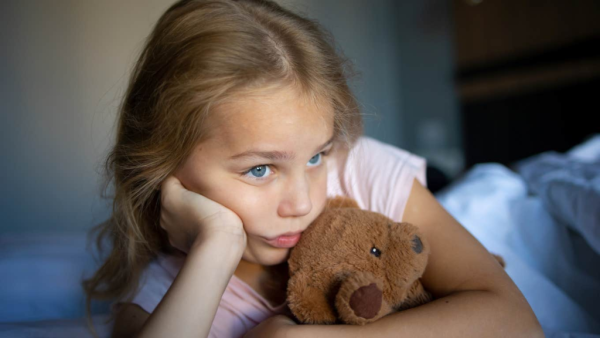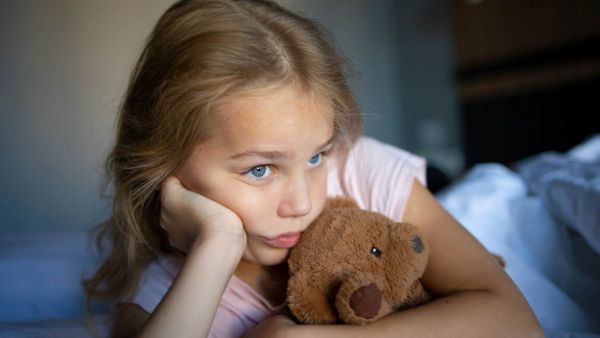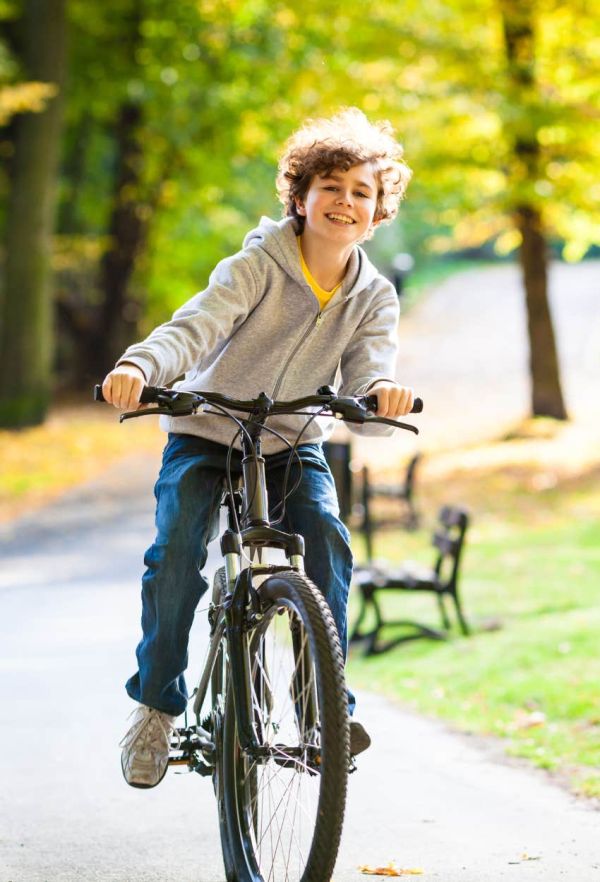

There’s no such thing as perfect when it comes to parenting. It’s a trial-and-error journey, and no matter how good a parent’s intentions may be, mistakes happen. It doesn’t mean they don’t love their kids unconditionally or want the best for them, but sometimes parents simply choose the wrong parenting style.
In a study published in the Journal of Psychologyresearchers found that there’s a specific parenting style that statistically has more negative effects on children than positive ones, and it’s super common.
The study, which observed Italian young adults with an average age of 22, found that kids raised with overprotective parents are less able to regulate emotions like anger, leading to anxiety and lower levels of life satisfaction as adults.
Researchers found that disrupted parental bonding, the emotional connection that develops between a parent and their child, especially in early childhood due to overprotective parenting, resulted in “higher anxiety, more frequent expression of anger, and lower life satisfaction,” as reported on by PsyPost.
Anna Pasichnyk | SHUTTERSTOCK
Proper parent-child bonding, which is categorized by a mutually loving connection and a commitment to seeing that the child thrives, lays the foundation for healthy emotional development. The outlet noted that in creating the bond, parents establish a foundation of trust that guides all of a child’s future relationships. Overprotective parenting, however, is the absence of trust, and that’s where the error occurs.
Researchers found that participants who had higher levels of maternal or paternal bonding were better able to control and express feelings of anger, which resulted in lower levels of anxiety and greater life satisfaction.
: Dad Asks If He’s Wrong For ‘Encouraging’ His Daughter To Be A Housewife
According to a Pew Research Center surveymore than four-in-ten parents (45%) say they tend to be overprotective, compared with 20% who say they tend to give too much freedom. When broken down between mothers and fathers, the results differed.
About half of mothers (51%) say they tend to be overprotective, compared with 38% of fathers. In turn, fathers (24%) are more likely than mothers (16%) to say they tend to give their children too much freedom.
There are a variety of reasons why parents have become so overprotective in recent years. Experts argue a general erosion of societal trust and parents uber-focused on the future successes of their kids in an ever-changing world as two sticking points, but unfortunately, although paved with good intentions, the results are rarely beneficial in the long run.
As psychiatrist Abilash Gopal, M.D., wrote in a piece for HuffPost, “The coddled child becomes the entitled teenager. The teen who expects his parents to fix his problems becomes the college student who demands that professors and administrators remove his obstacles.” Gopal went on to say, “If we continue to overparent our kids, we are in danger of raising further generations of adolescents that are missing three key virtues of character: self-reliance, self-confidence, and resilience.”
: Dad Asks If It’s ‘Weird’ That His Teen Son Suddenly Needs His Physical Affection — ‘Is Our Level Of Touching Appropriate?’
“Allowing kids to play in the woods, problem-solve without a parent interjecting the answer, ride their bike to a friend’s house, and fail and take on new challenges are all part of growing up,” explained social psychologist Susan Newman. “Absolutely, as parents, we have to weigh the risks, and sometimes we must say no, suggest an alternate route, or help them find a safer path.” Unfortunately, saying no to everything might keep kids safe, but they are unable to function as independent adults because they have no idea how to trust themselves or anyone else.
 Jacek Chabraszewski | Shutterstock
Jacek Chabraszewski | Shutterstock
With the world that we’re living in, it’s no wonder that so many parents lean toward an overprotective parenting style. With the popularity of social media and the number of kids who are on it every day, coupled with the fact that kids are being exposed to a wealth of information and disinformation that their brains can’t quite discern yet, their overall well-being is always something to worry about.
However, if you’re confident in your parenting abilities and have taught your child and continue to teach them what’s right in this world and what’s wrong, then you should be able to trust that they’ve listened to the endless talks about how to be safe. Sometimes the best thing to do as a parent is simply let go and hope that they’ve retained the life lessons and morals that they’ve been hearing since the moment they could walk, talk, and understand.
“By thinking carefully about how you show up for your children — and when you shouldn’t — you’ll be setting them up to one day take the reins themselves,” Newman insisted.
: Mom Over ‘Weird’ Trend Of Making Rules To Meet New Babies — ‘It’s Almost Like Gatekeeping A Baby’
Nia Tipton is a staff writer with a bachelor’s degree in creative writing and journalism who covers news and lifestyle topics that focus on psychology, relationships, and the human experience.